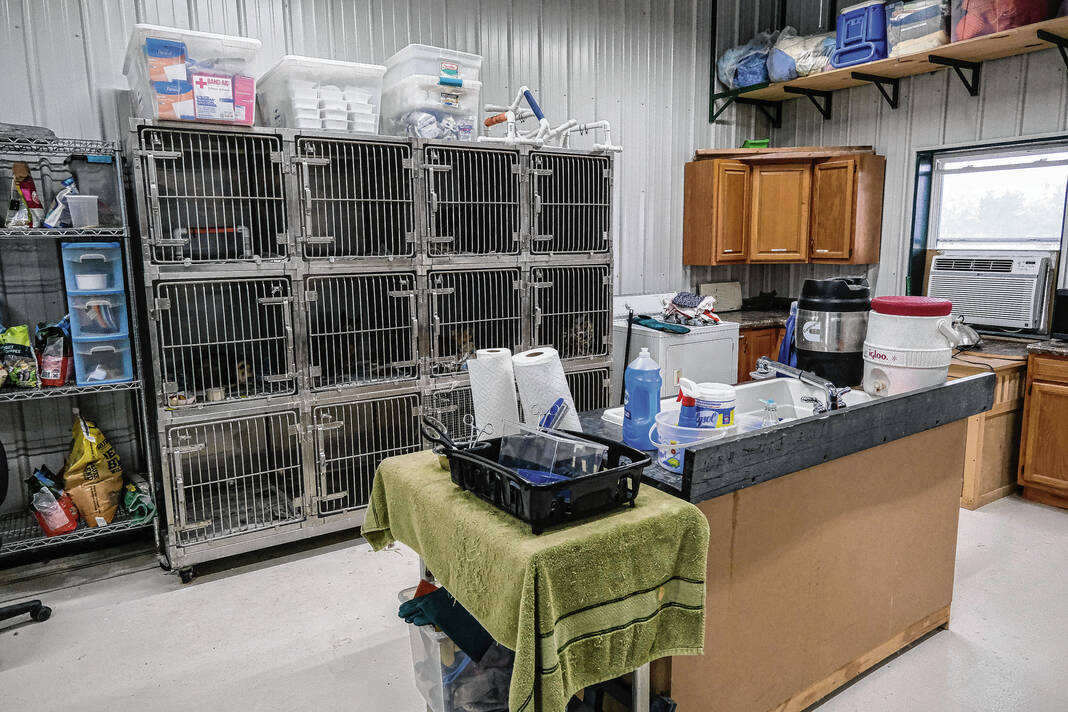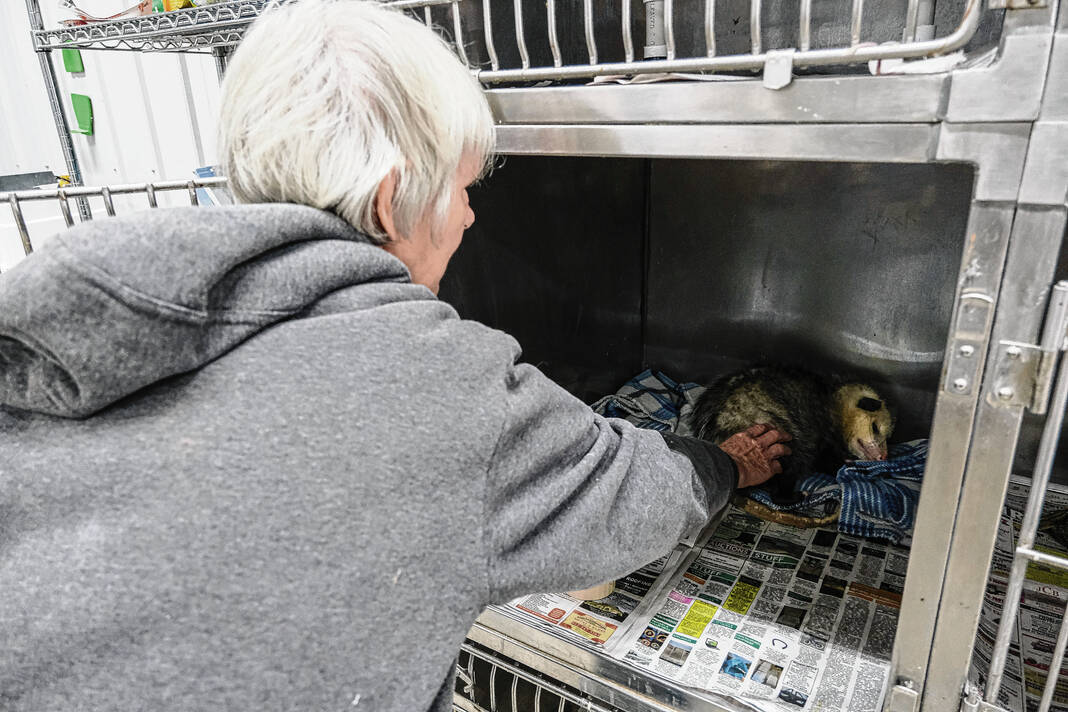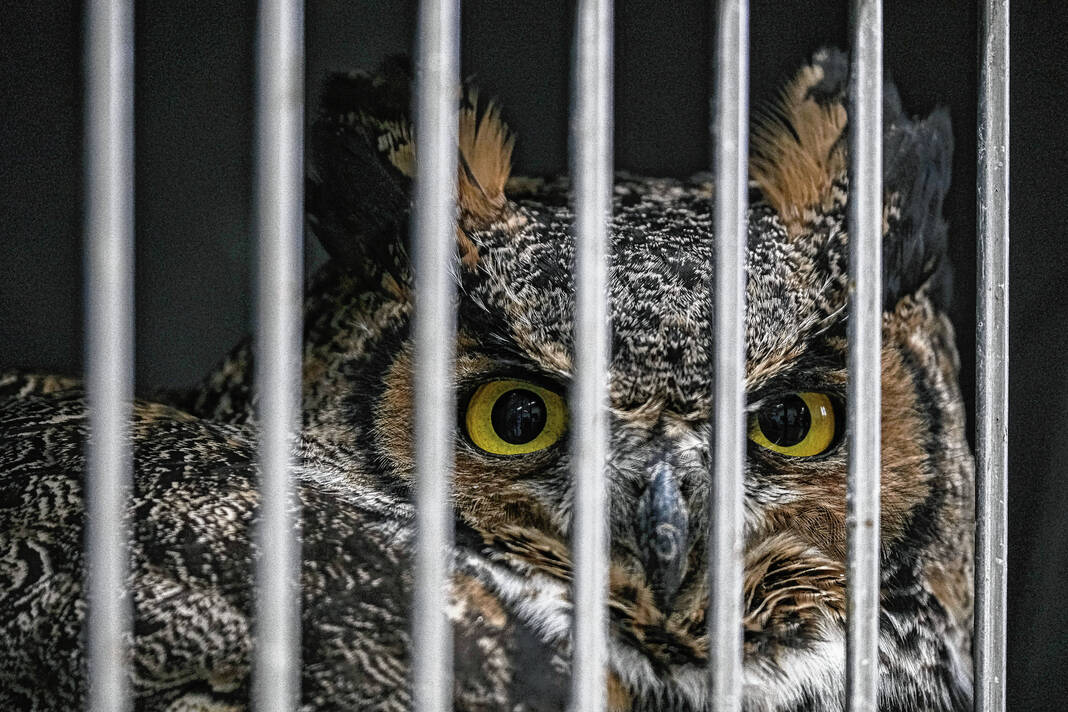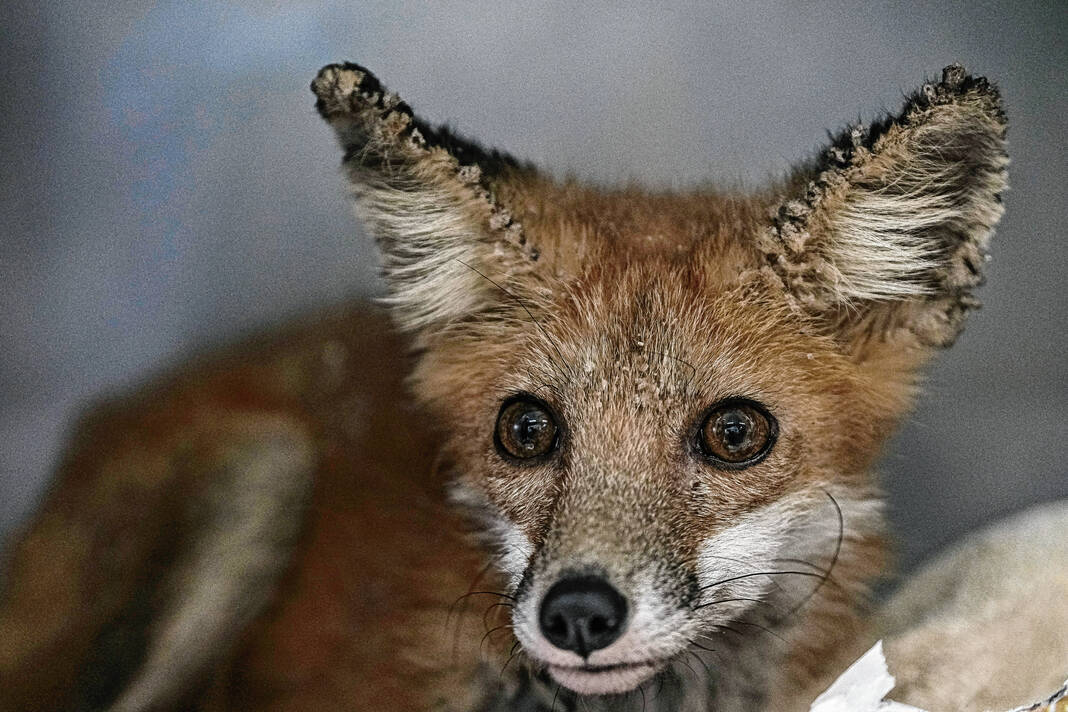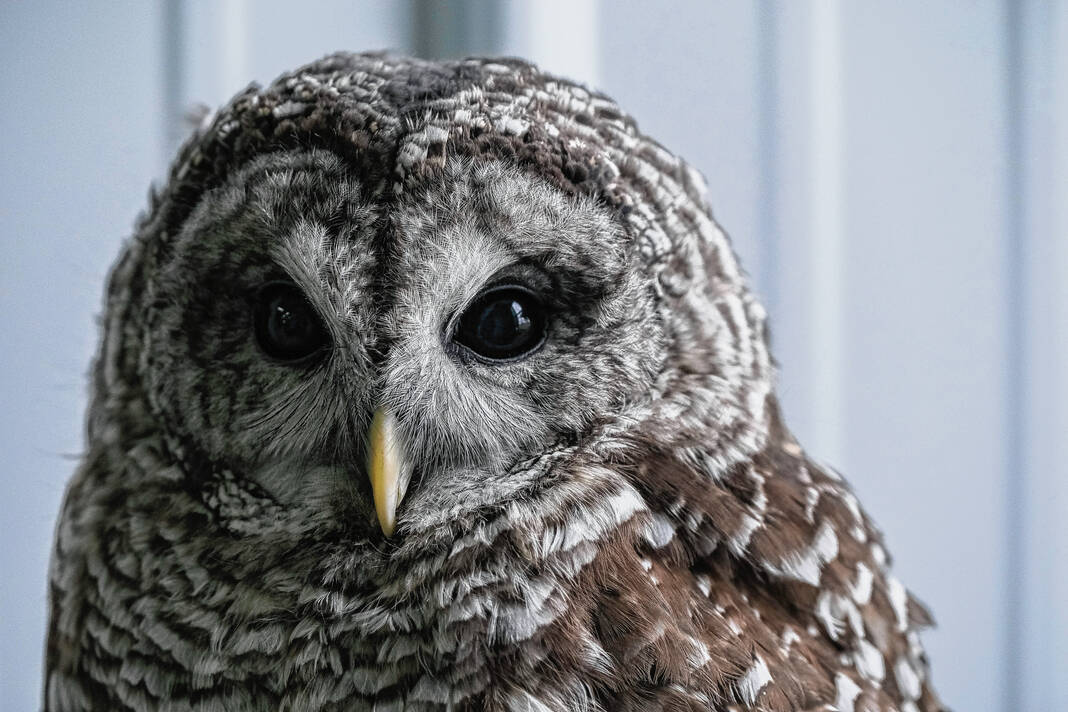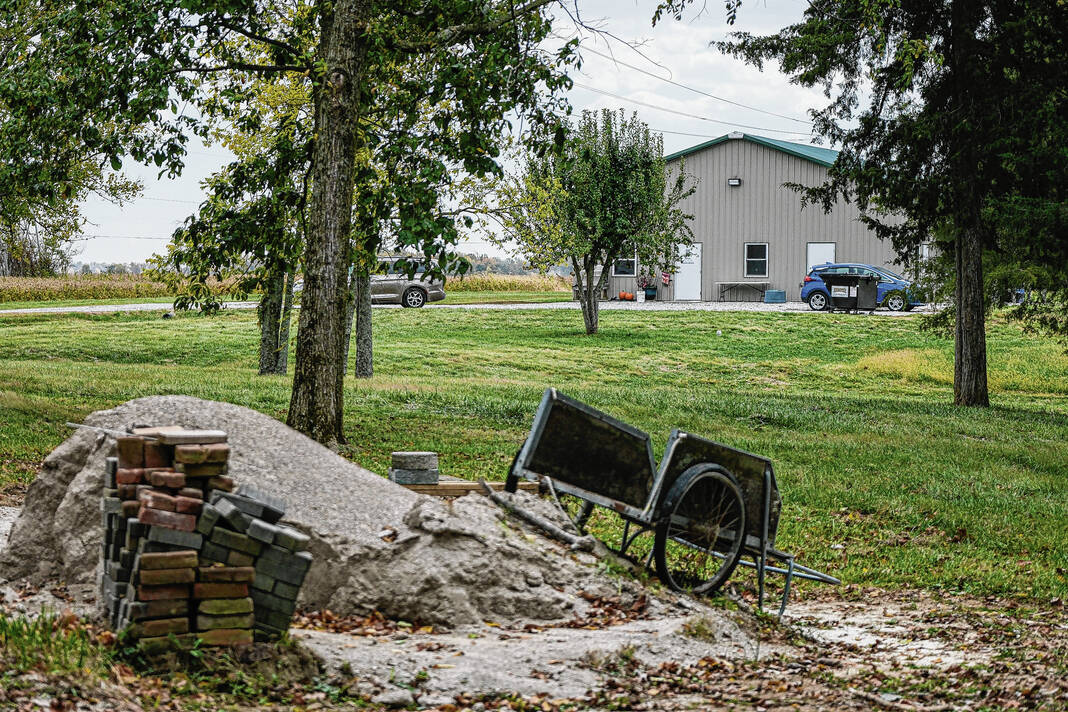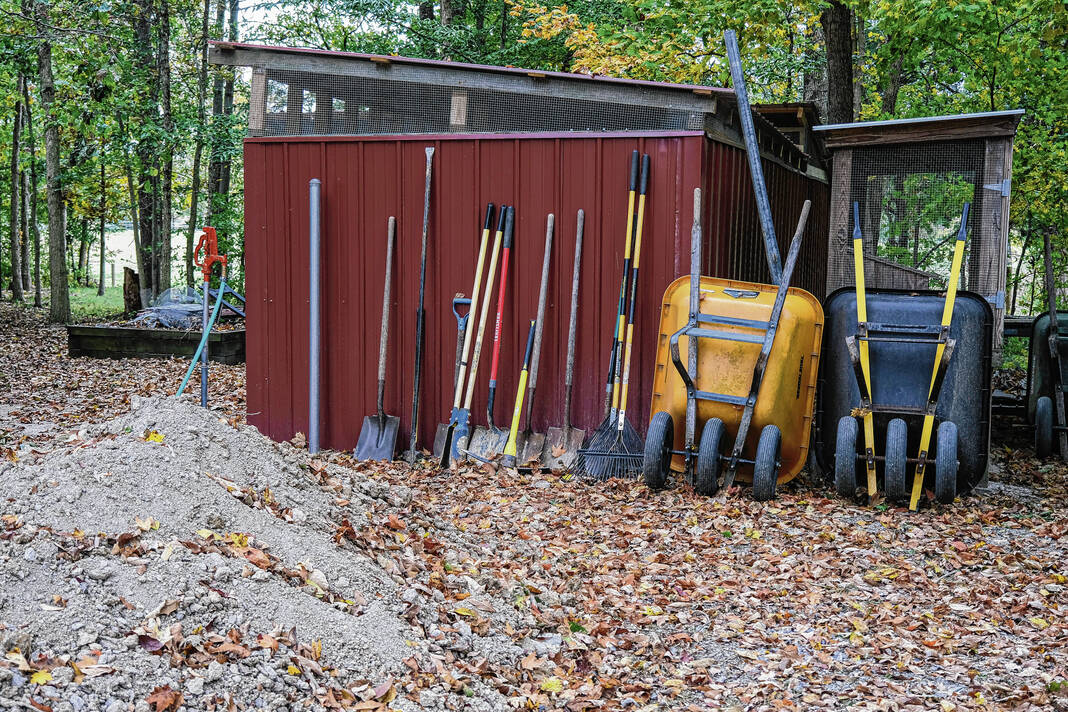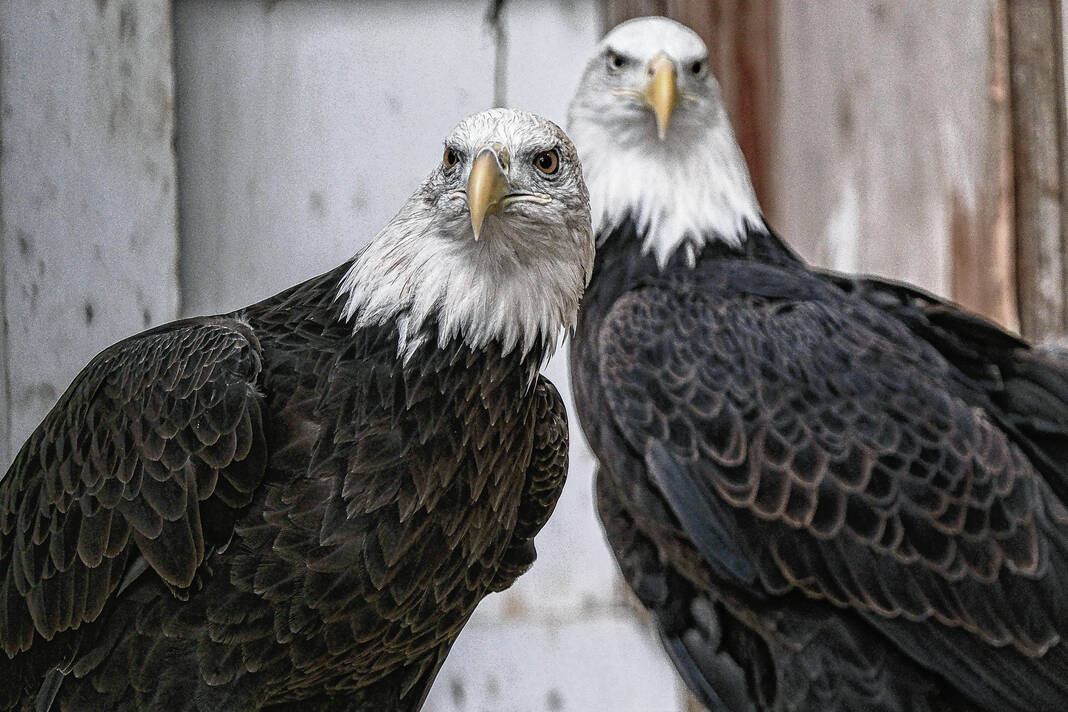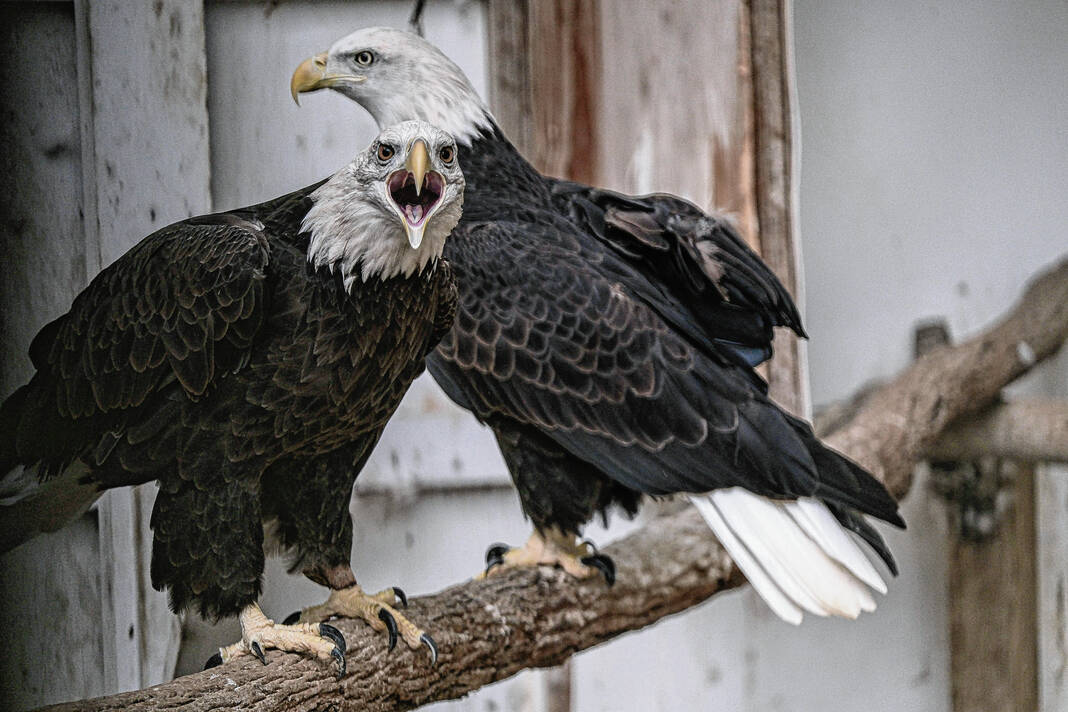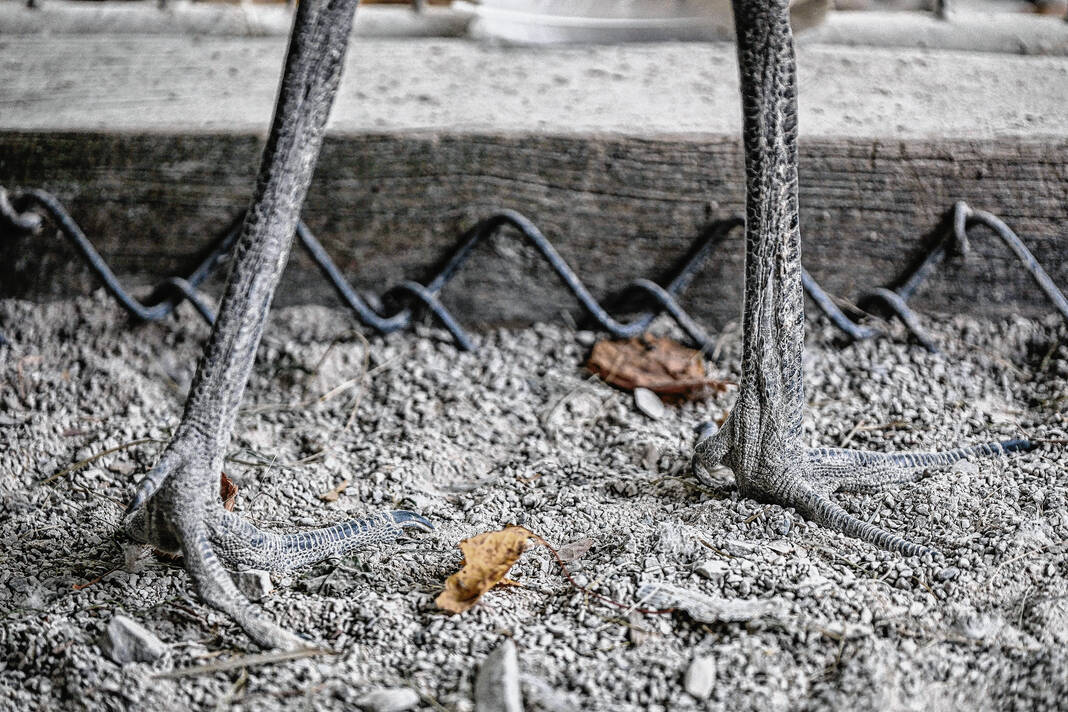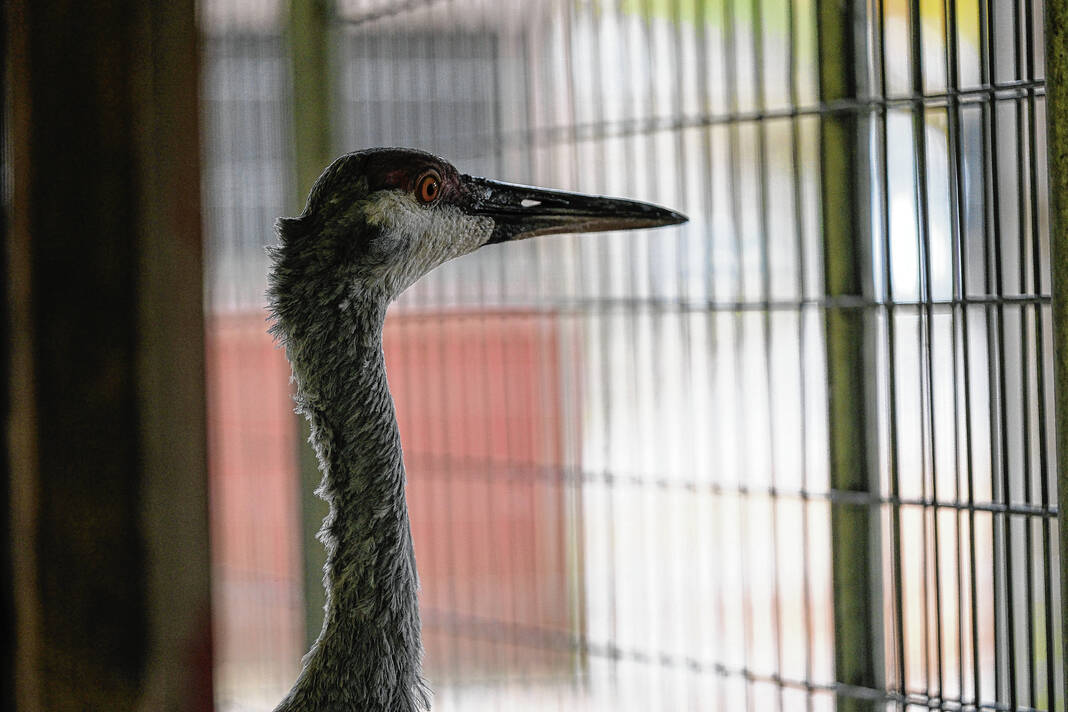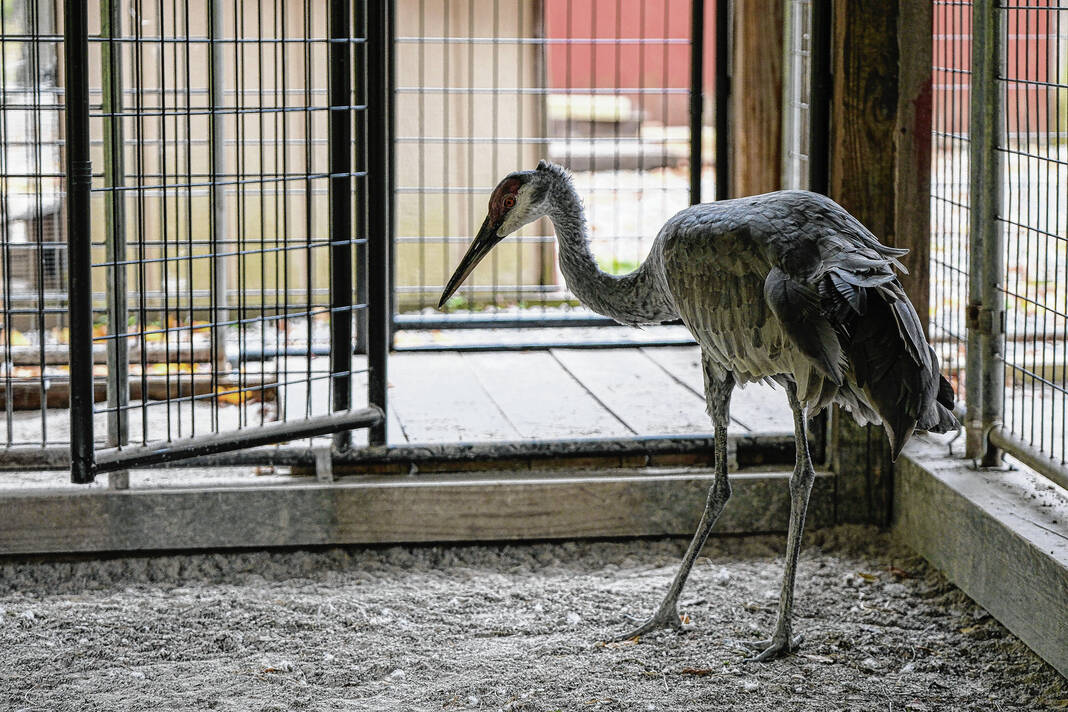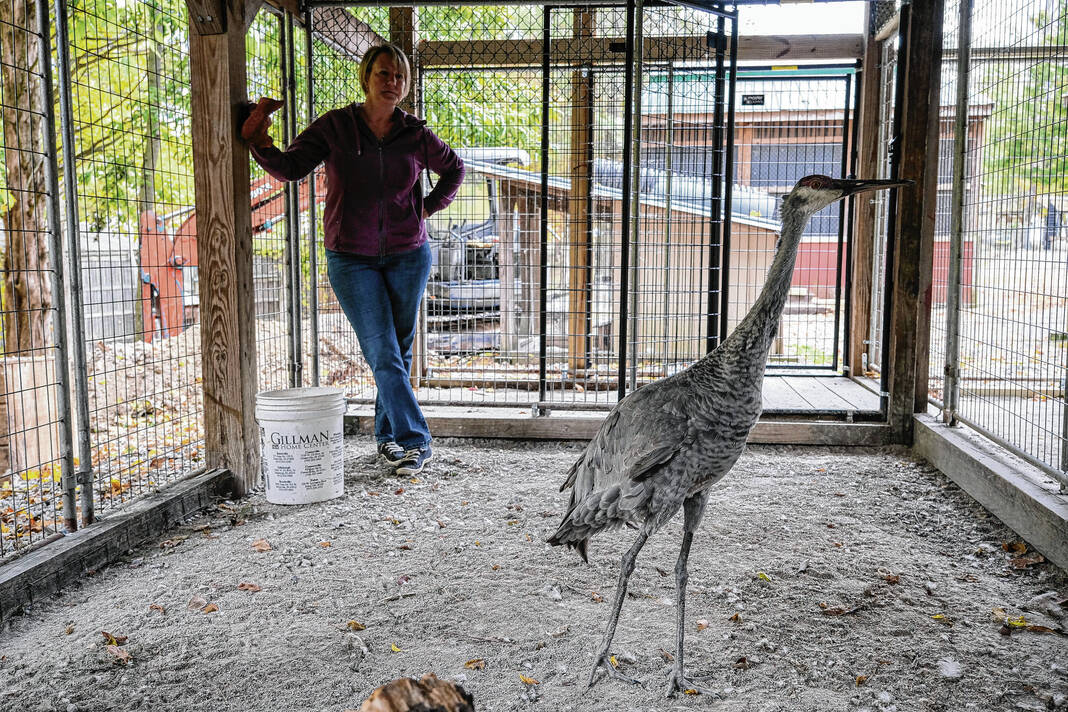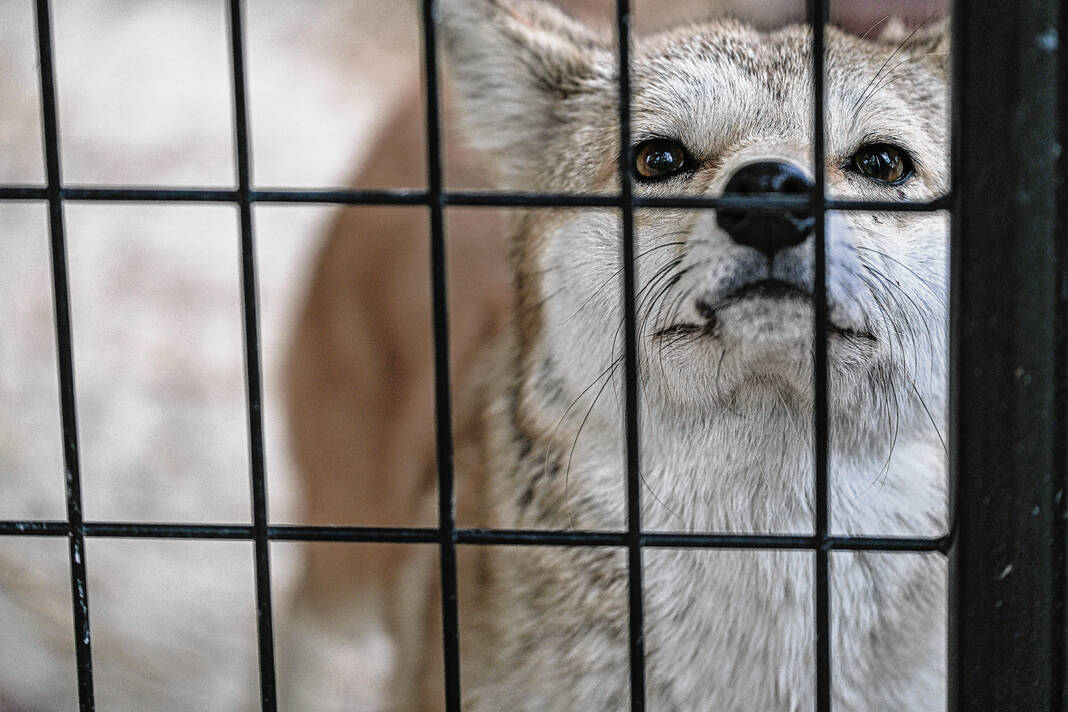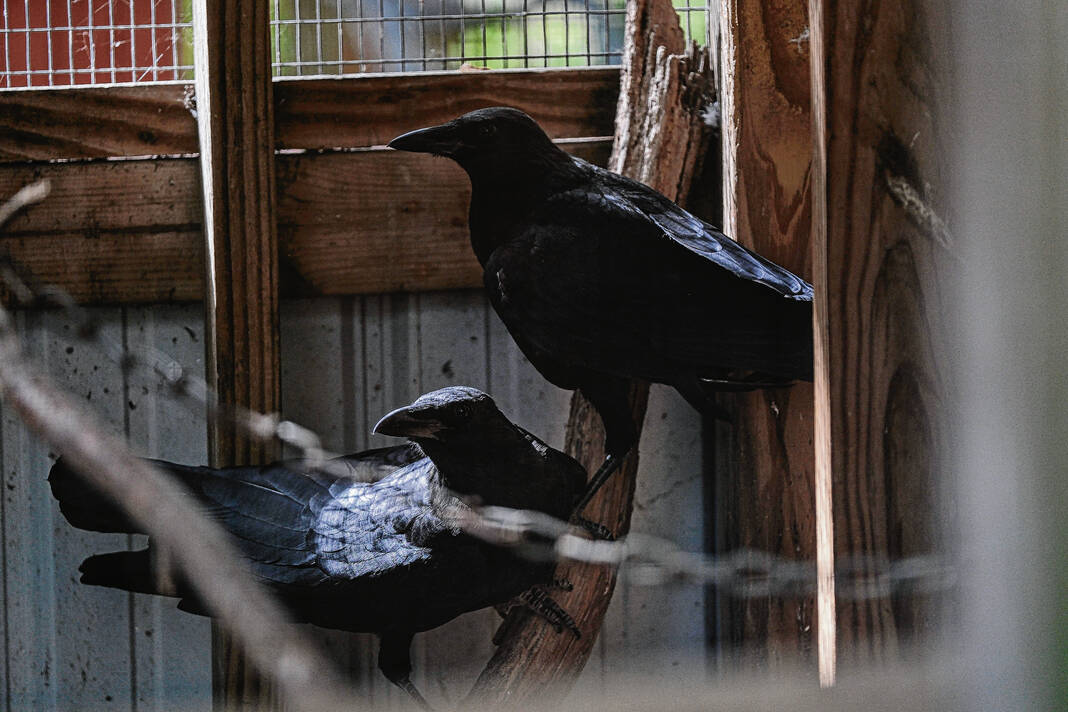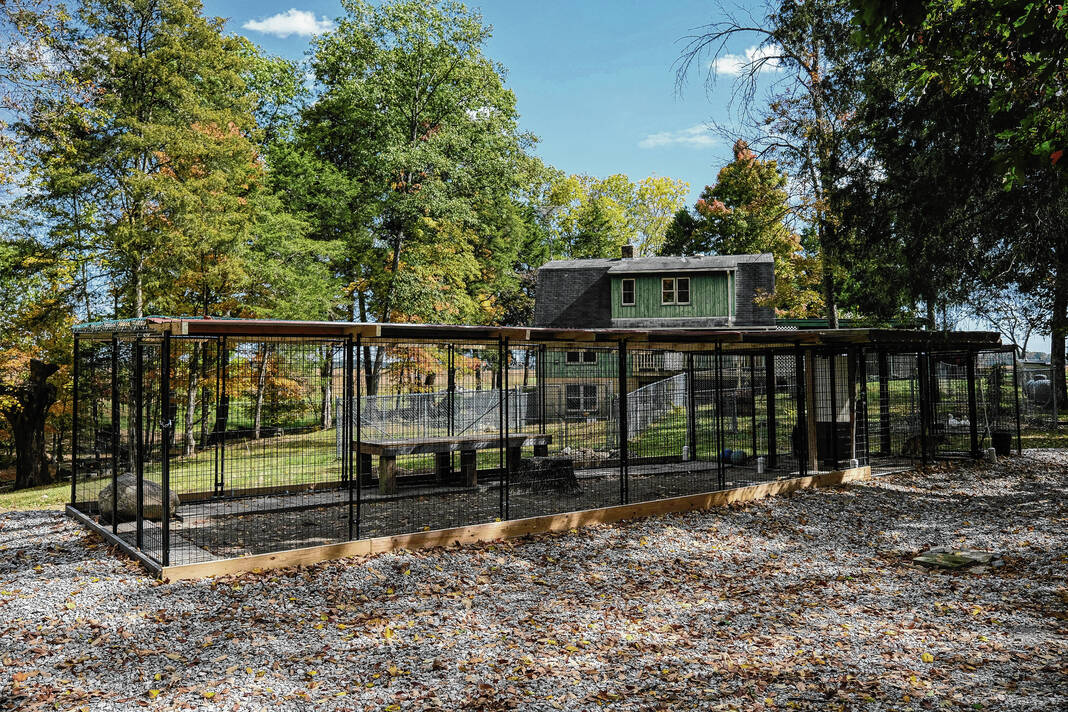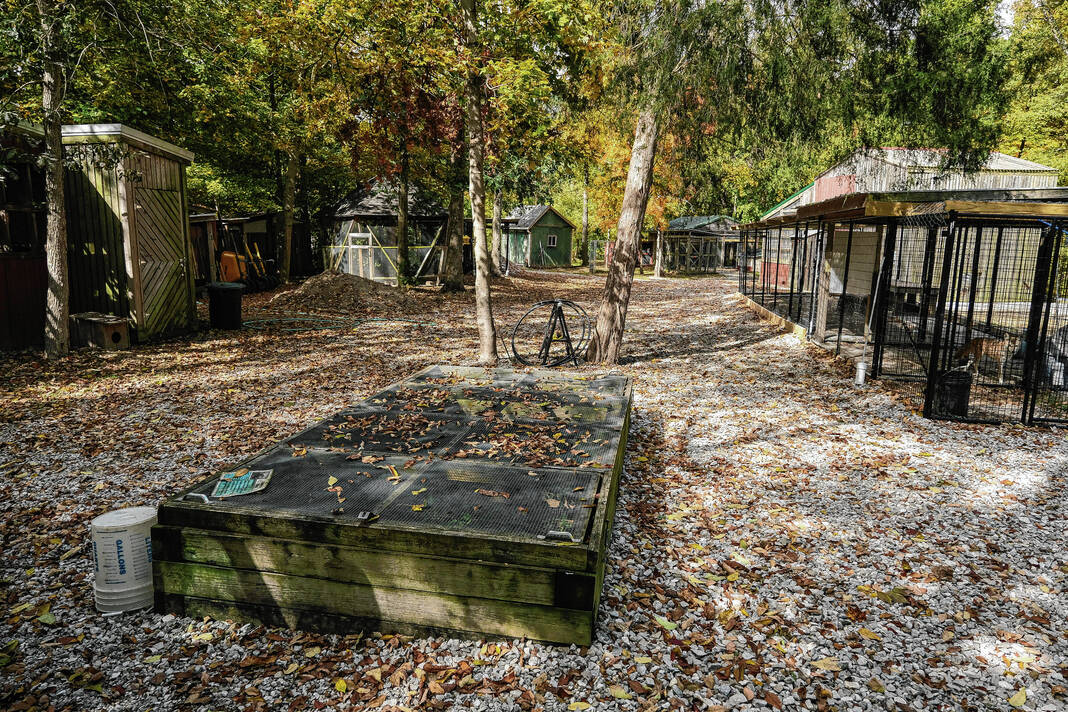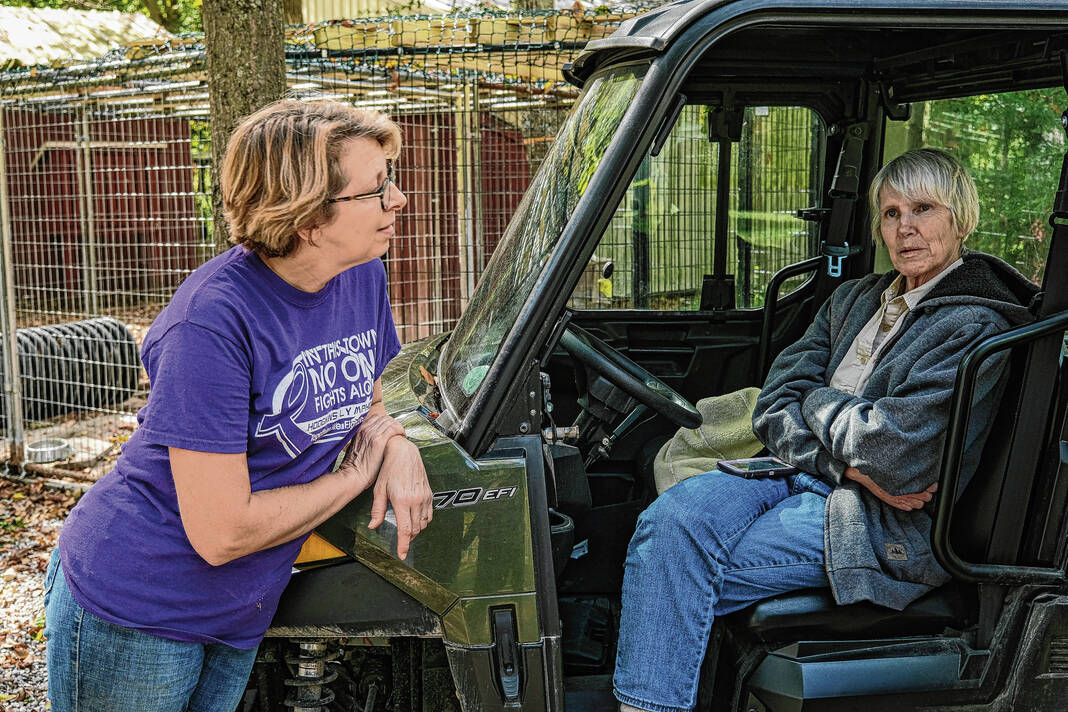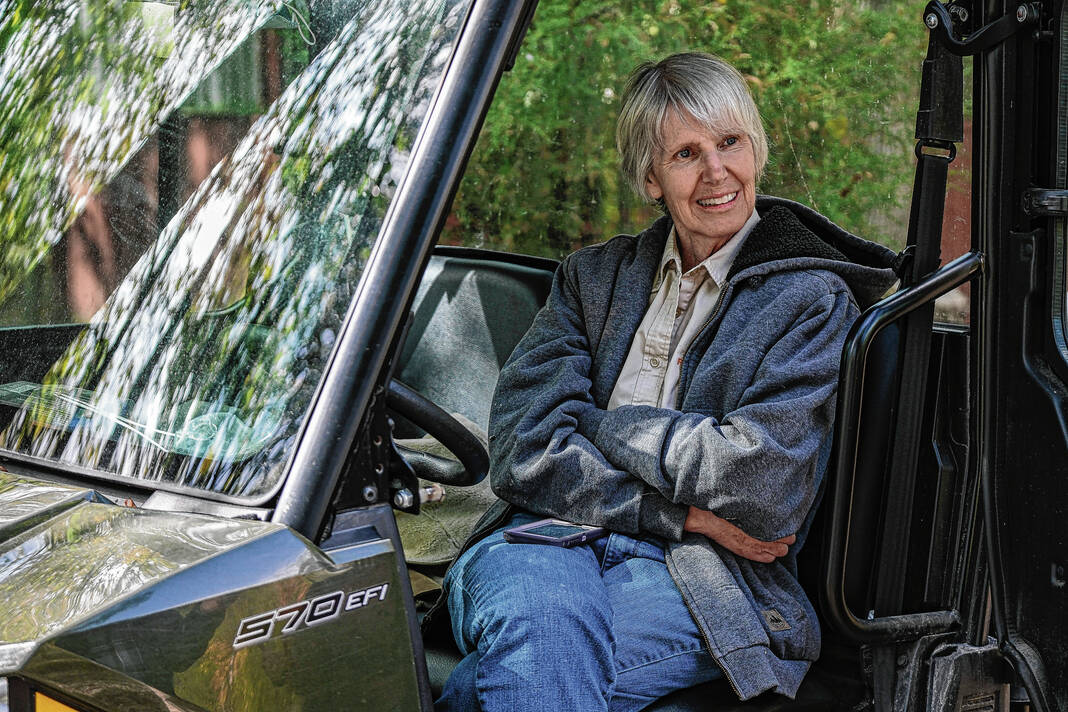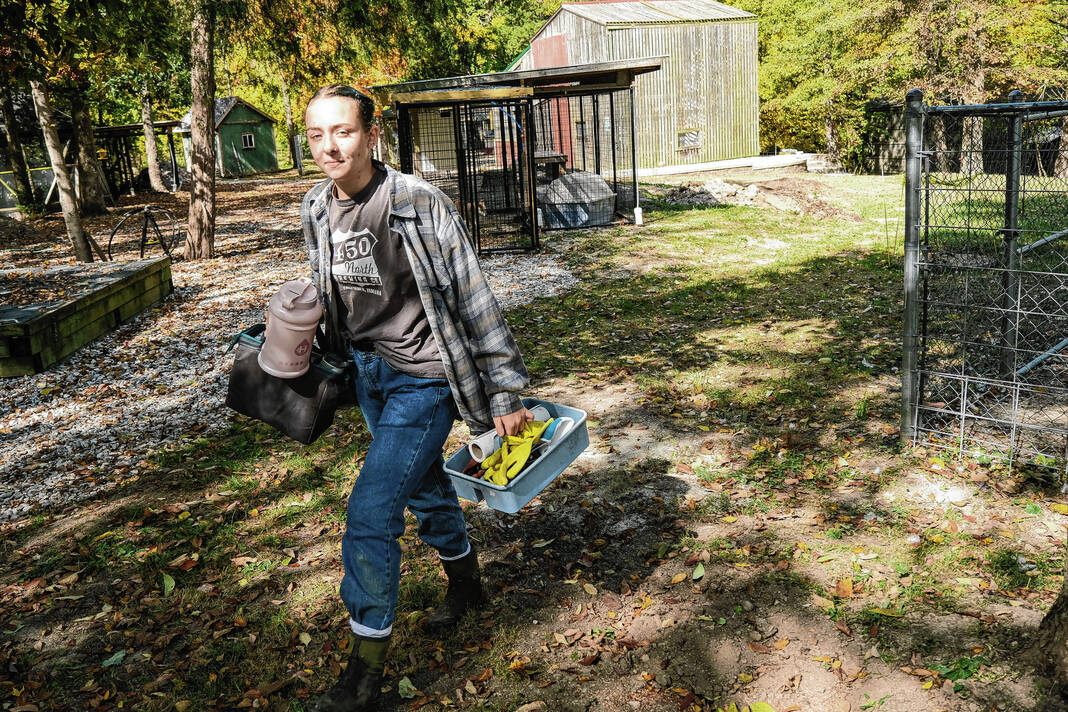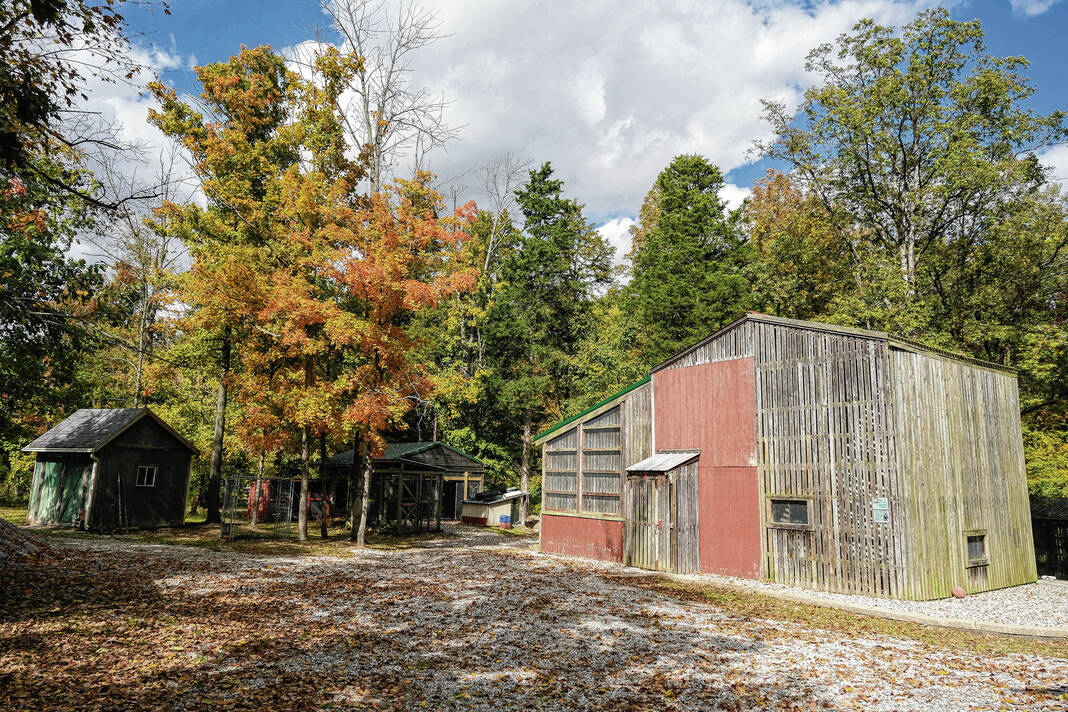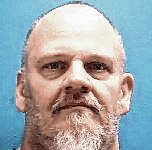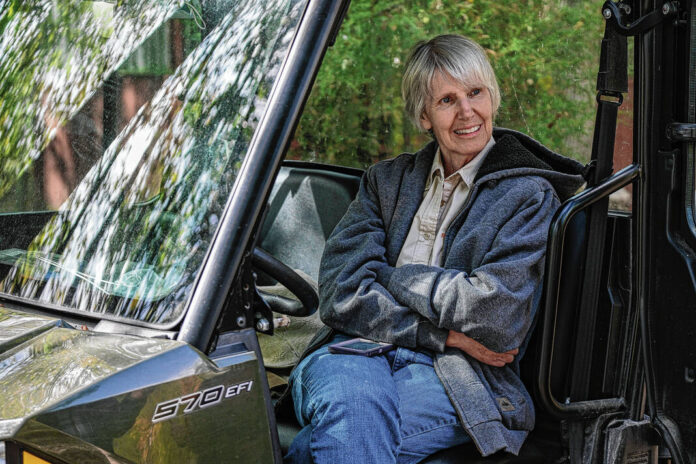
Mike Wolanin | The Republic Kathy Hershey, a founder of Utopia Wildlife Rehabilitators, sits in a vehicle at Utopia in Hope, Ind., Thursday, Oct. 13, 2022.
A celebration to mark two decades of wildlife rehabilitation and education in Bartholomew County is planned Saturday.
Utopia Wildlife Rehabilitators, 18300 E. County Road 200N, Hope, will mark its 20th year in operation with what organizers call its Owloween Anniversary Bash. The event is 1 to 4 p.m. Saturday.
While the animals and birds are always the top attraction at the facility one mile west of Anderson Falls Park, this party will include extra fun for visitors such as a live performance by a jazz trio, an ice cream truck, cake, popcorn, an auction, pumpkin carving and more.
All the animals will be visible – either in or out of cages – and there will be a story-time with them, Utopia’s Kathy Hershey said.
But after the party is over, Utopia will return to the difficult job of re-imagining their operation for the next 20 years and beyond.
“We’re trying to examine what services we will be offering, and a lot of that will require having paid help,” Hershey said. “I’ve never taken any money in 20 years. That’s one of the reasons why it works now.”
Unfortunately, there are very few foundations providing grants to organizations such as Utopia that focus on benefiting animal life, rather than the human condition, Hershey said.
But that attitude may change as more people begin to understand the very real and serious threat facing wildlife in the 21st century, Hershey said.
“Scientists realize we are witnessing a mass extinction,” she said. “We are losing so many animals.”
The biennial Living Planet Report recently stated that Earth’s wildlife populations have plunged by an average of 69% in just under 50 years. The gradual extinction continues as humans continue to clear forests, consume beyond the limits of the planet and pollute on an industrial scale, the report states.
“As more people understand this, it will make Utopia even more important,” Hershey said.
The origin of Wildlife Rehabilitators stems from the West Nile Virus that appeared in Indiana in 2002. Many birds – especially raptors such as eagles, hawks, falcons, were severely affected.
At the time, Hershey was working as a surgical technician at Columbus Animal Hospital for Dr. Melissa Newcomb, the other co-founder of Utopia.
“We had many birds getting sick, and Kathy and I were already working with wildlife,” Newcomb said. “That’s when Animal Control came to us and said ‘Hey, are you guys officially going to do something? Because we don’t know what to do with all these animals from the sky.’ So we started working on them. And from there, we just kept growing.”
Utopia was incorporated and became a 501(c)(3) nonprofit in 2004. At that time, Hershey and Newcomb obtained the necessary governmental permits for non-releasable birds and animals to be used for educational programs.
Newcomb did have to cut back on the time she could devote to Utopia when she became the mother of four with a husband in the military who was being deployed to the Middle East, she said.
As her kids got older, Newcomb was able to get her master’s in education from the University of Indianapolis. She teaches science at Hauser Jr.-Sr. High School, as well as advanced biology for Indiana University and advanced animal science for Ivy Tech.
She is trying to increase her time with Utopia as much as her schedule will permit.
The organization will supply information to homeowners, animal agencies and others about living with wildlife and reducing wildlife/human conflict, Hershey said.
“When it comes to dealing in wildlife, a lot of people are operating in the dark,” she said. “But the fact that people are reaching out to us – not just going on the internet and finding something goofy – is a positive development.”
The ultimate goal of Utopia Wildlife Rehabilitators is to heal wounded birds and animals, so they can be set free and fend for themselves.
Programming was suspended during the worst period of the COVID-19 pandemic. However, there was an increase in the number of people contacting the nonprofit to ask about wildlife appearing in their yards, Hershey said.
Utopia now receives requests to make presentations at libraries, schools and other organizations, Hershey said. The group was also featured during the Columbus Scottish Festival and Hope Heritage Days in an effort to increase their outreach.
On-site presentations at Utopia have steadily increased since May, with several tours given of the facilities each week in September, according to the organization’s educational outreach coordinator Beth White.
When White was asked which animal most fascinates small children, she began to laugh.
“We can show them eagles, hawks, coyotes and everything else,” White said. “But with the little kids, if you bring out a turtle, it’s the ‘be-all-and-end-all.’ And that’s a good thing because our box turtles are a threatened species in Indiana.”
Utopia sparks an interest and passion for wildlife in children that can be used to teach about protecting a species and working with wildlife, White said.
“We get the kids to become ‘wildlife warriors,’ ” she said.
While Utopia is in need of a financial boost, there are plenty of organizations and individuals working with them. For example, they have partnered with Franklin College and the College of Veterinary Medicine at Purdue University. The two schools provide interns and camp counselors. Utopia now has about 30 volunteers, Newcomb said.
One of the newest features is the 30-foot-by-50-foot animal hospital that contains a classroom, an exam room, incubators, medicine storage and food preparation facilities. It was finished about three years ago completely with private donations.
But if an animal needs more help that what that facility can provide, Utopia will use Hillview Veterinary Clinic in Franklin.
Finally, the name Utopia might make many believe the grounds are intended to be a perfect haven for injured or sick wildlife.
While that would be great, it was Newcomb’s husband, Tom, who used his sense of humor to come up with what the name really stands for. His version is that UTOPIA is an acronym for “Up To Our Posteriors In Animals.”

